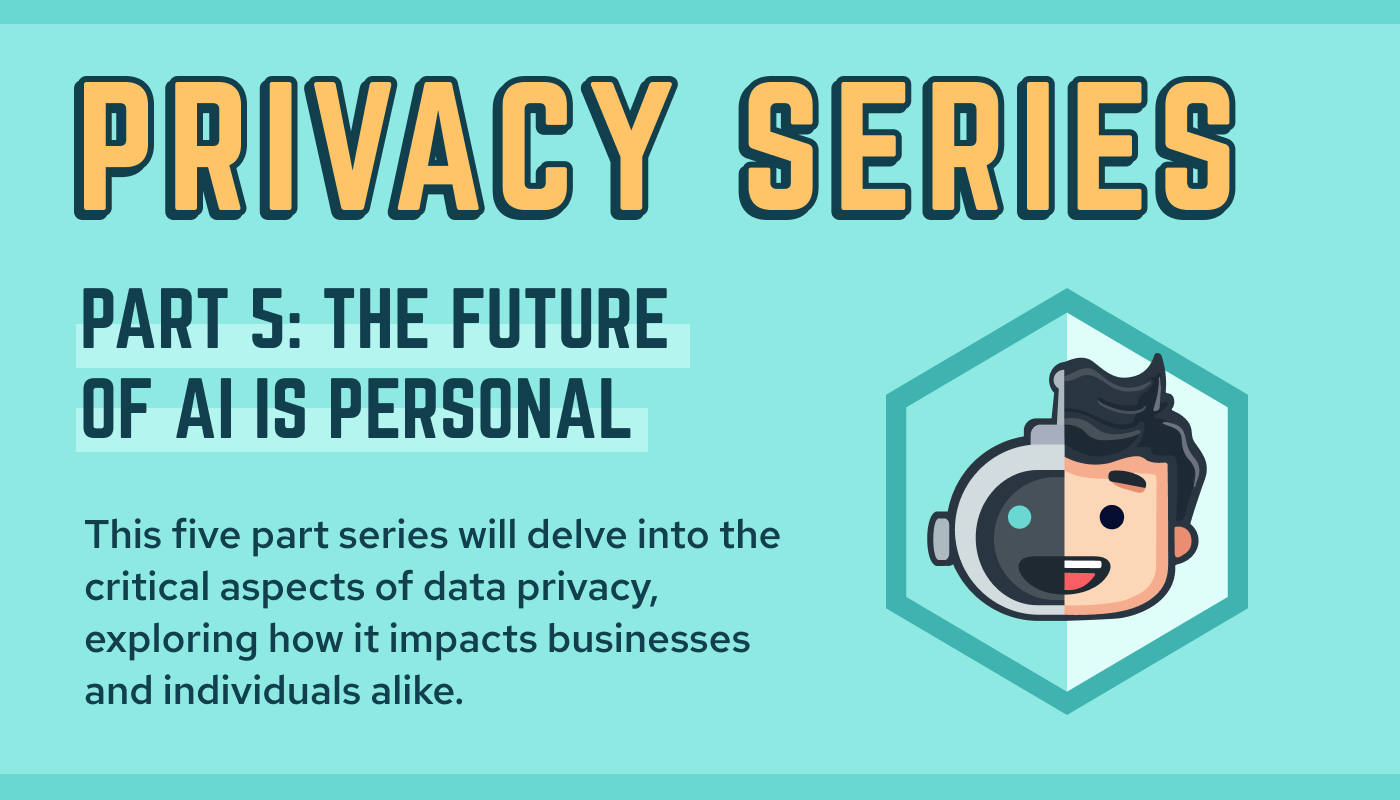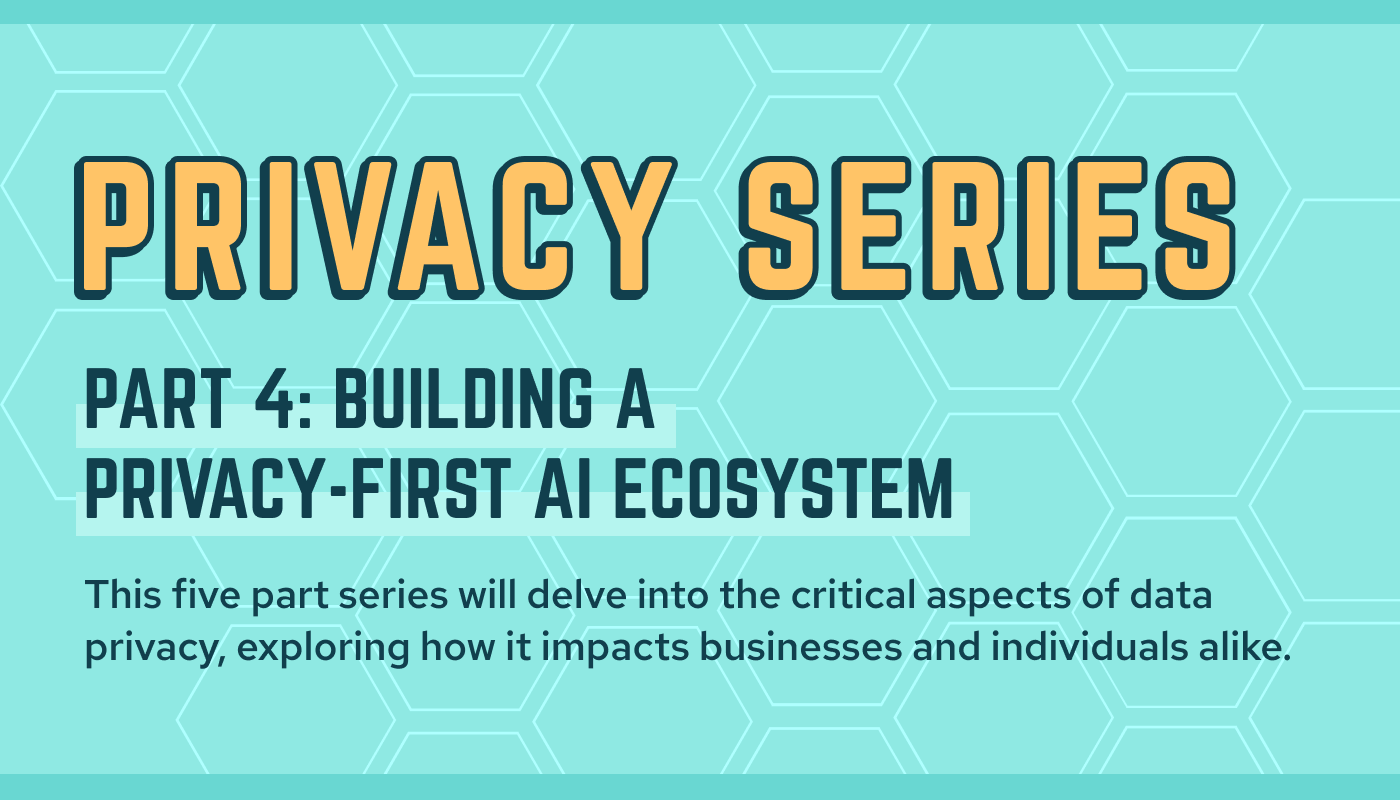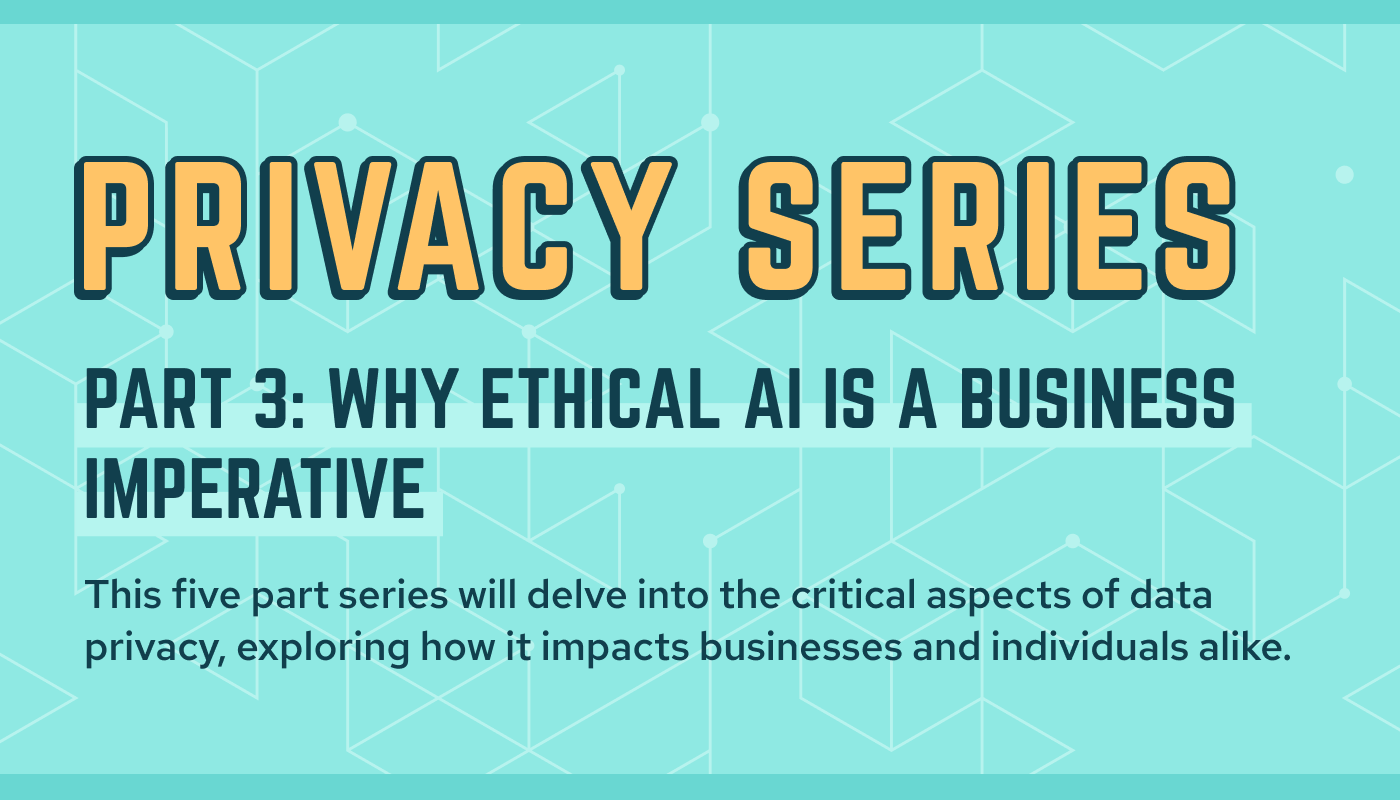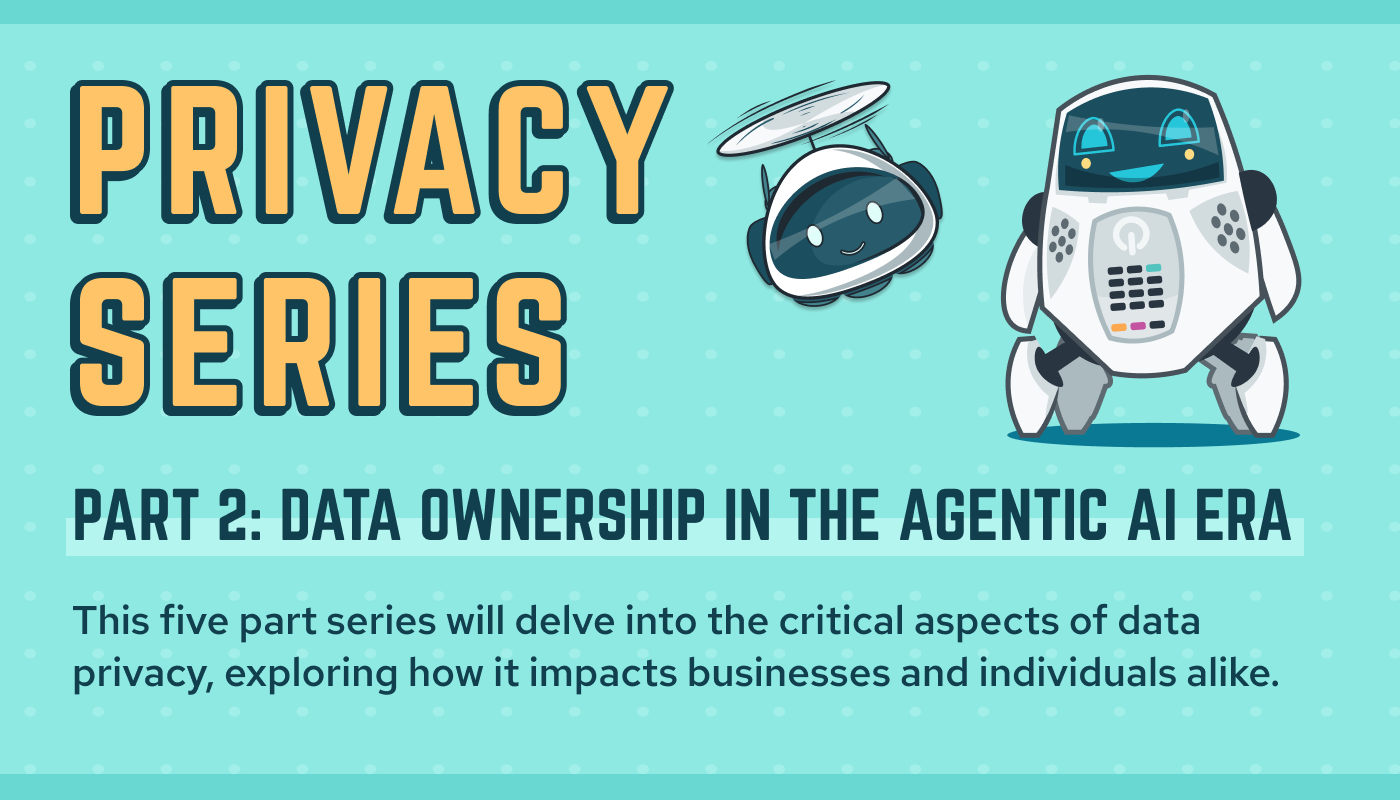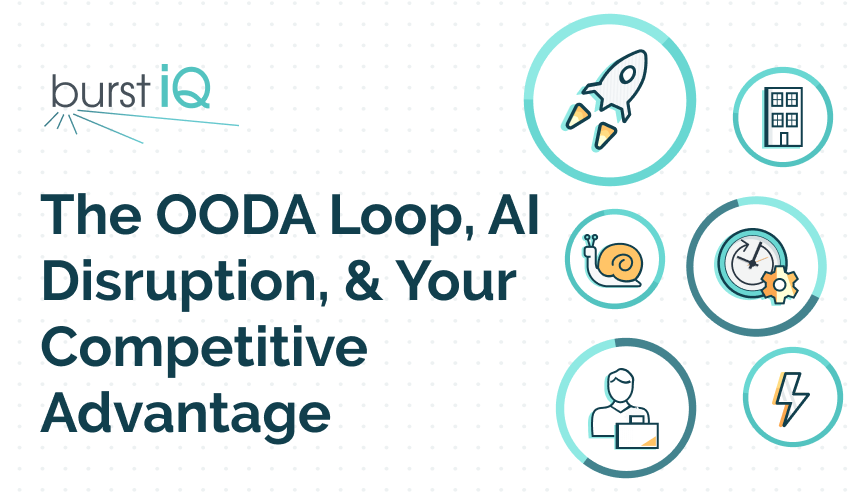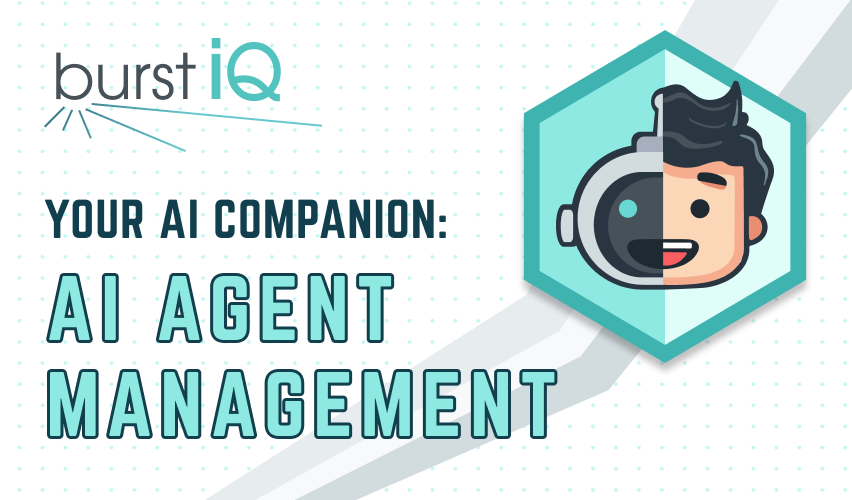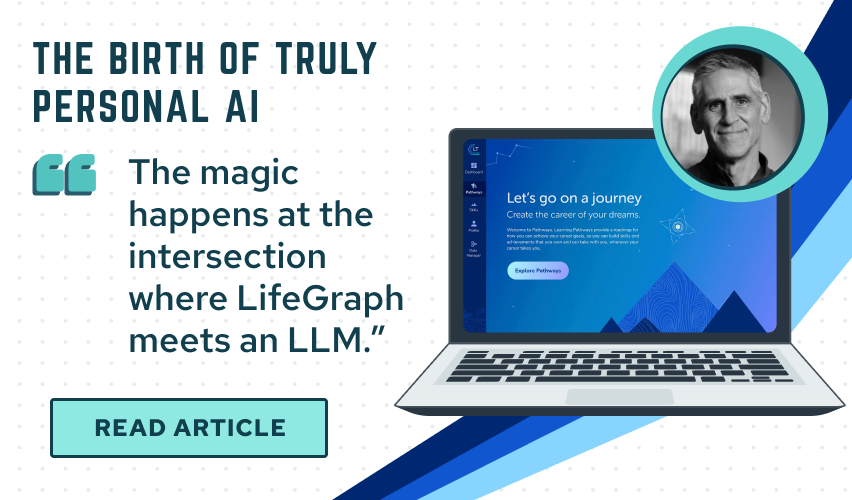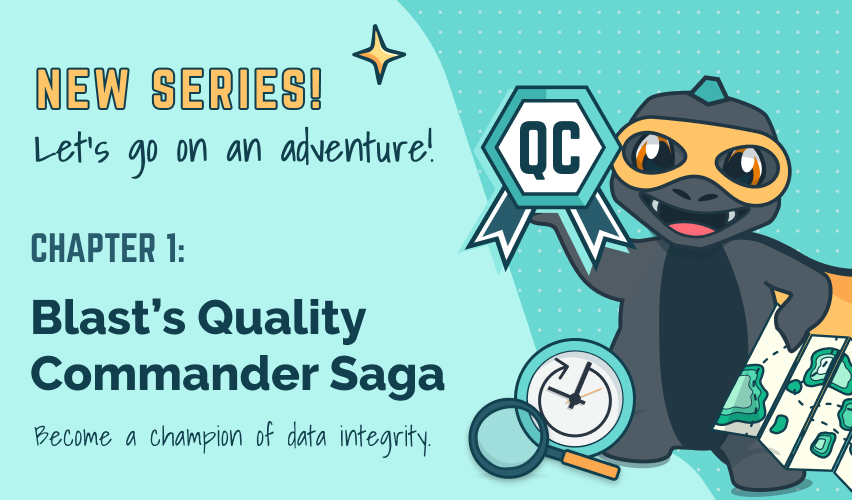

The AI Privacy Paradox:
Can Enterprises Balance Innovation & Trust?
Businesses face an unprecedented challenge: harnessing AI’s transformative power without compromising their customers’ trust. This challenge is magnified for enterprises in regulated industries, where compliance and trust are non-negotiable and reputational risk is high.
How do you innovate responsibly when the very success of AI relies on personal data? And can enterprises truly balance innovation with trust?
Welcome to the AI Privacy Paradox.
Why AI Thrives on Data & Why That’s a Problem
Artificial intelligence is only as good as the data it learns from. The more personal, contextual, and rich the data, the better AI can deliver tailored insights, meaningful interactions, and impactful results. This can mean life-saving predictions, fraud prevention, or hyper-personalized customer experiences for regulated industries like healthcare, finance, and insurance.
But here’s the rub. The same data that fuels innovation also introduces risk.
When your AI needs to know everything about a customer’s habits, preferences, and even private health records to perform effectively, how do you ensure that this data is stored, shared, and used ethically?
Breaches, misuse, or even the perception of misuse can erode trust in an instance. In highly regulated industries, this doesn’t just result in reputational damage. It can lead to hefty fines, customer loss, distraction from core business activities, and years of rebuilding.
The Erosion of Trust in the Digital Age
Trust in digital systems has been eroding for years. High-profile privacy scandals, ransomware attacks, and AI-driven phishing scams have left customers feeling vulnerable and skeptical about how their data is being used. The introduction of agentic AI will compound the problem.
For enterprises, this erosion of trust creates a ripple effect:
- Customers are increasingly reluctant to share data, which impacts the quality of AI insights.
- Regulators are stepping in with stricter requirements, increasing compliance complexity.
- Competitors who prioritize privacy are gaining a strategic edge.
Yet, the demand for personalization and intelligence in AI solutions continues to rise. Customers want AI to feel personal, but they also want to know their data is safe.
Enterprises are caught in a delicate balancing act:
They must meet customer expectations for innovation while safeguarding their privacy.
Balancing Innovation & Trust: A New Approach
The good news? Balancing innovation and trust isn’t just possible, it’s the key to thriving in the AI-driven future. Enterprises that take a proactive, privacy-first approach to AI will lead the way in building trust with customers, partners, and regulators alike.
Here are three critical strategies for doing so:
1. Redefine Data Ownership
The days of treating customer data as a commodity are over. Customers demand more transparency and control over their data, and enterprises that embrace this shift will be rewarded with customer confidence and better data.
A privacy-first AI strategy starts with giving customers ownership over their data. This means shifting from centralized data models (where enterprises control everything) to decentralized or user-centric models.
Platforms like LifeGraph exemplify this approach, enabling individuals to manage their own data while still allowing enterprises to leverage AI insights in a secure and ethical manner.
TRUST INSIGHT: When customers trust you with their data, they’re more willing to share it. Data ownership isn’t just ethical, it’s a competitive advantage.
2. Build Privacy into AI from the Ground Up
Too often, privacy is treated as an afterthought, something to fix once an AI system is in place. But this reactive approach is no longer viable in a world of increasing regulation (think GDPR, CCPA, or HIPAA).
Instead, enterprises must adopt privacy-by-design principles. This means embedding privacy into the very architecture of AI systems, from the collection of data to its storage, sharing, and use.
AI models should be designed to minimize data exposure, anonymize sensitive information, and ensure compliance with regulations at every step.
TRUST INSIGHT: Privacy isn’t a roadblock to innovation; it’s the foundation for long-term success in regulated industries.
3. Lean into Transparency & Accountability
C-level executives play a critical role in fostering a culture of transparency and accountability.
Customers and regulators don’t just want to know that your data practices are compliant; they want to see it. This means providing clear, accessible information about how your AI systems work, what data is used, and how privacy is protected.
Transparency is also crucial in addressing inevitable challenges, such as security breaches or errors in AI decision-making. Enterprises that acknowledge mistakes, take swift action, and communicate openly will emerge stronger.
TRUST INSIGHT: Trust isn’t about being perfect; it’s about being accountable. Transparency builds resilience and loyalty in the face of challenges.
The Competitive Advantage of Trust
In regulated industries, trust isn’t just a nice-to-have; it’s a business imperative.
Enterprises that prioritize privacy and ethical AI practices will gain a competitive edge in three key ways:
1. Customer Loyalty:
Trustworthy companies foster deeper, long-term relationships with customers.
2. Regulatory Resilience:
Proactive compliance reduces the risk of fines, delays, or reputational damage.
3. Innovation Freedom:
With a strong foundation of trust, enterprises can innovate boldly without fear of backlash.
TRUST INSIGHT: The AI privacy paradox isn’t a barrier, it’s an opportunity. Enterprises that solve this puzzle will unlock the full potential of AI while setting themselves apart in a competitive market.
BurstIQ’s Vision: Solving the Privacy Paradox
At BurstIQ, we believe the future of AI is personal, and that innovation and trust can, and must, coexist.
The LifeGraph platform empowers enterprises to build AI systems that prioritize privacy, security, and transparency, while fostering meaningful and trustworthy interactions between humans, AI, and businesses.
By redefining how data is owned, shared, and used, LifeGraph solves the privacy paradox and paves the way for a more collaborative, ethical AI future.
Final Thought: Leading the Way in the Age of Personal AI
As AI becomes more personal, enterprises will face increasing pressure to balance innovation with trust. But for forward-thinking leaders, this isn’t a dilemma, it’s a chance to lead. By embracing privacy-first strategies, redefining data ownership, and fostering transparency, enterprises can build the trust needed to thrive in the AI-driven future.
The question isn’t whether your enterprise can balance innovation and trust.
The question is: Are you ready to lead the way?
We’re excited to kick off the first installment of our five-part series on data privacy. This series will delve into the critical aspects of data privacy, exploring how it impacts businesses and individuals alike.
To stay updated and ensure you don’t miss any of the upcoming articles, be sure to follow us on LinkedIn. Join us on this journey as we navigate the complexities of data privacy together!
The AI Privacy Paradox:
Can Enterprises Balance Innovation & Trust?
Businesses face an unprecedented challenge: harnessing AI’s transformative power without compromising their customers’ trust. This challenge is magnified for enterprises in regulated industries, where compliance and trust are non-negotiable and reputational risk is high.
How do you innovate responsibly when the very success of AI relies on personal data? And can enterprises truly balance innovation with trust?
Welcome to the AI Privacy Paradox.
Why AI Thrives on Data
& Why That’s a Problem
Artificial intelligence is only as good as the data it learns from. The more personal, contextual, and rich the data, the better AI can deliver tailored insights, meaningful interactions, and impactful results. This can mean life-saving predictions, fraud prevention, or hyper-personalized customer experiences for regulated industries like healthcare, finance, and insurance.
But here’s the rub. The same data that fuels innovation also introduces risk.
When your AI needs to know everything about a customer’s habits, preferences, and even private health records to perform effectively, how do you ensure that this data is stored, shared, and used ethically?
Breaches, misuse, or even the perception of misuse can erode trust in an instance. In highly regulated industries, this doesn’t just result in reputational damage. It can lead to hefty fines, customer loss, distraction from core business activities, and years of rebuilding.
The Erosion of Trust in the Digital Age
Trust in digital systems has been eroding for years. High-profile privacy scandals, ransomware attacks, and AI-driven phishing scams have left customers feeling vulnerable and skeptical about how their data is being used. The introduction of agentic AI will compound the problem.
For enterprises, this erosion of trust creates a ripple effect:
- Customers are increasingly reluctant to share data, which impacts the quality of AI insights.
- Regulators are stepping in with stricter requirements, increasing compliance complexity.
- Competitors who prioritize privacy are gaining a strategic edge.
Yet, the demand for personalization and intelligence in AI solutions continues to rise. Customers want AI to feel personal, but they also want to know their data is safe.
Enterprises are caught in a delicate balancing act:
They must meet customer expectations for innovation while safeguarding their privacy.
Balancing Innovation & Trust:
A New Approach
The good news? Balancing innovation and trust isn’t just possible, it’s the key to thriving in the AI-driven future. Enterprises that take a proactive, privacy-first approach to AI will lead the way in building trust with customers, partners, and regulators alike.
Here are three critical strategies for doing so:
1. Redefine Data Ownership
The days of treating customer data as a commodity are over. Customers demand more transparency and control over their data, and enterprises that embrace this shift will be rewarded with customer confidence and better data.
A privacy-first AI strategy starts with giving customers ownership over their data. This means shifting from centralized data models (where enterprises control everything) to decentralized or user-centric models.
Platforms like LifeGraph exemplify this approach, enabling individuals to manage their own data while still allowing enterprises to leverage AI insights in a secure and ethical manner.
TRUST INSIGHT: When customers trust you with their data, they’re more willing to share it. Data ownership isn’t just ethical, it’s a competitive advantage.
2. Build Privacy into AI from the Ground Up
Too often, privacy is treated as an afterthought, something to fix once an AI system is in place. But this reactive approach is no longer viable in a world of increasing regulation (think GDPR, CCPA, or HIPAA).
Instead, enterprises must adopt privacy-by-design principles. This means embedding privacy into the very architecture of AI systems, from the collection of data to its storage, sharing, and use.
AI models should be designed to minimize data exposure, anonymize sensitive information, and ensure compliance with regulations at every step.
TRUST INSIGHT: Privacy isn’t a roadblock to innovation; it’s the foundation for long-term success in regulated industries.
3. Lean into Transparency & Accountability
C-level executives play a critical role in fostering a culture of transparency and accountability.
Customers and regulators don’t just want to know that your data practices are compliant; they want to see it. This means providing clear, accessible information about how your AI systems work, what data is used, and how privacy is protected.
Transparency is also crucial in addressing inevitable challenges, such as security breaches or errors in AI decision-making. Enterprises that acknowledge mistakes, take swift action, and communicate openly will emerge stronger.
TRUST INSIGHT: Trust isn’t about being perfect; it’s about being accountable. Transparency builds resilience and loyalty in the face of challenges.
The Competitive Advantage of Trust
In regulated industries, trust isn’t just a nice-to-have; it’s a business imperative.
Enterprises that prioritize privacy and ethical AI practices will gain a competitive edge in three key ways:
1. Customer Loyalty:
Trustworthy companies foster deeper, long-term relationships with customers.
2. Regulatory Resilience:
Proactive compliance reduces the risk of fines, delays, or reputational damage.
3. Innovation Freedom:
With a strong foundation of trust, enterprises can innovate boldly without fear of backlash.
TRUST INSIGHT: The AI privacy paradox isn’t a barrier, it’s an opportunity. Enterprises that solve this puzzle will unlock the full potential of AI while setting themselves apart in a competitive market.
BurstIQ’s Vision: Solving the Privacy Paradox
At BurstIQ, we believe the future of AI is personal, and that innovation and trust can, and must, coexist.
The LifeGraph platform empowers enterprises to build AI systems that prioritize privacy, security, and transparency, while fostering meaningful and trustworthy interactions between humans, AI, and businesses.
By redefining how data is owned, shared, and used, LifeGraph solves the privacy paradox and paves the way for a more collaborative, ethical AI future.
Final Thought:
Leading the Way in the Age of Personal AI
As AI becomes more personal, enterprises will face increasing pressure to balance innovation with trust. But for forward-thinking leaders, this isn’t a dilemma, it’s a chance to lead. By embracing privacy-first strategies, redefining data ownership, and fostering transparency, enterprises can build the trust needed to thrive in the AI-driven future.
The question isn’t whether your enterprise can balance innovation and trust.
The question is: Are you ready to lead the way?
We’re excited to kick off the first installment of our five-part series on data privacy. This series will delve into the critical aspects of data privacy, exploring how it impacts businesses and individuals alike.
To stay updated and ensure you don’t miss any of the upcoming articles, be sure to follow us on LinkedIn. Join us on this journey as we navigate the complexities of data privacy together!
The AI Privacy Paradox:
Can Enterprises Balance Innovation & Trust?
Businesses face an unprecedented challenge: harnessing AI’s transformative power without compromising their customers’ trust. This challenge is magnified for enterprises in regulated industries, where compliance and trust are non-negotiable and reputational risk is high.
How do you innovate responsibly when the very success of AI relies on personal data? And can enterprises truly balance innovation with trust?
Welcome to the AI Privacy Paradox.
Why AI Thrives on Data
& Why That’s a Problem
Artificial intelligence is only as good as the data it learns from. The more personal, contextual, and rich the data, the better AI can deliver tailored insights, meaningful interactions, and impactful results. This can mean life-saving predictions, fraud prevention, or hyper-personalized customer experiences for regulated industries like healthcare, finance, and insurance.
But here’s the rub. The same data that fuels innovation also introduces risk.
When your AI needs to know everything about a customer’s habits, preferences, and even private health records to perform effectively, how do you ensure that this data is stored, shared, and used ethically?
Breaches, misuse, or even the perception of misuse can erode trust in an instance. In highly regulated industries, this doesn’t just result in reputational damage. It can lead to hefty fines, customer loss, distraction from core business activities, and years of rebuilding.
The Erosion of Trust in the Digital Age
Trust in digital systems has been eroding for years. High-profile privacy scandals, ransomware attacks, and AI-driven phishing scams have left customers feeling vulnerable and skeptical about how their data is being used. The introduction of agentic AI will compound the problem.
For enterprises, this erosion of trust creates a ripple effect:
- Customers are increasingly reluctant to share data, which impacts the quality of AI insights.
- Regulators are stepping in with stricter requirements, increasing compliance complexity.
- Competitors who prioritize privacy are gaining a strategic edge.
Yet, the demand for personalization and intelligence in AI solutions continues to rise. Customers want AI to feel personal, but they also want to know their data is safe.
Enterprises are caught in a delicate balancing act:
They must meet customer expectations for innovation while safeguarding their privacy.
Balancing Innovation & Trust: A New Approach
The good news? Balancing innovation and trust isn’t just possible, it’s the key to thriving in the AI-driven future. Enterprises that take a proactive, privacy-first approach to AI will lead the way in building trust with customers, partners, and regulators alike.
Here are three critical strategies for doing so:
1. Redefine Data Ownership
The days of treating customer data as a commodity are over. Customers demand more transparency and control over their data, and enterprises that embrace this shift will be rewarded with customer confidence and better data.
A privacy-first AI strategy starts with giving customers ownership over their data. This means shifting from centralized data models (where enterprises control everything) to decentralized or user-centric models.
Platforms like LifeGraph exemplify this approach, enabling individuals to manage their own data while still allowing enterprises to leverage AI insights in a secure and ethical manner.
TRUST INSIGHT: When customers trust you with their data, they’re more willing to share it. Data ownership isn’t just ethical, it’s a competitive advantage.
2. Build Privacy into AI from the Ground Up
Too often, privacy is treated as an afterthought, something to fix once an AI system is in place. But this reactive approach is no longer viable in a world of increasing regulation (think GDPR, CCPA, or HIPAA).
Instead, enterprises must adopt privacy-by-design principles. This means embedding privacy into the very architecture of AI systems, from the collection of data to its storage, sharing, and use.
AI models should be designed to minimize data exposure, anonymize sensitive information, and ensure compliance with regulations at every step.
TRUST INSIGHT: Privacy isn’t a roadblock to innovation; it’s the foundation for long-term success in regulated industries.
3. Lean into Transparency & Accountability
C-level executives play a critical role in fostering a culture of transparency and accountability.
Customers and regulators don’t just want to know that your data practices are compliant; they want to see it. This means providing clear, accessible information about how your AI systems work, what data is used, and how privacy is protected.
Transparency is also crucial in addressing inevitable challenges, such as security breaches or errors in AI decision-making. Enterprises that acknowledge mistakes, take swift action, and communicate openly will emerge stronger.
TRUST INSIGHT: Trust isn’t about being perfect; it’s about being accountable. Transparency builds resilience and loyalty in the face of challenges.
The Competitive Advantage of Trust
In regulated industries, trust isn’t just a nice-to-have; it’s a business imperative.
Enterprises that prioritize privacy and ethical AI practices will gain a competitive edge in three key ways:
1. Customer Loyalty:
Trustworthy companies foster deeper, long-term relationships with customers.
2. Regulatory Resilience:
Proactive compliance reduces the risk of fines, delays, or reputational damage.
3. Innovation Freedom:
With a strong foundation of trust, enterprises can innovate boldly without fear of backlash.
TRUST INSIGHT: The AI privacy paradox isn’t a barrier, it’s an opportunity. Enterprises that solve this puzzle will unlock the full potential of AI while setting themselves apart in a competitive market.
BurstIQ’s Vision: Solving the Privacy Paradox
At BurstIQ, we believe the future of AI is personal, and that innovation and trust can, and must, coexist.
The LifeGraph platform empowers enterprises to build AI systems that prioritize privacy, security, and transparency, while fostering meaningful and trustworthy interactions between humans, AI, and businesses.
By redefining how data is owned, shared, and used, LifeGraph solves the privacy paradox and paves the way for a more collaborative, ethical AI future.
Final Thought:
Leading the Way in the Age of Personal AI
As AI becomes more personal, enterprises will face increasing pressure to balance innovation with trust. But for forward-thinking leaders, this isn’t a dilemma, it’s a chance to lead. By embracing privacy-first strategies, redefining data ownership, and fostering transparency, enterprises can build the trust needed to thrive in the AI-driven future.
The question isn’t whether your enterprise can balance innovation and trust.
The question is: Are you ready to lead the way?
We’re excited to kick off the first installment of our five-part series on data privacy. This series will delve into the critical aspects of data privacy, exploring how it impacts businesses and individuals alike.
To stay updated and ensure you don’t miss any of the upcoming articles, be sure to follow us on LinkedIn. Join us on this journey as we navigate the complexities of data privacy together!
